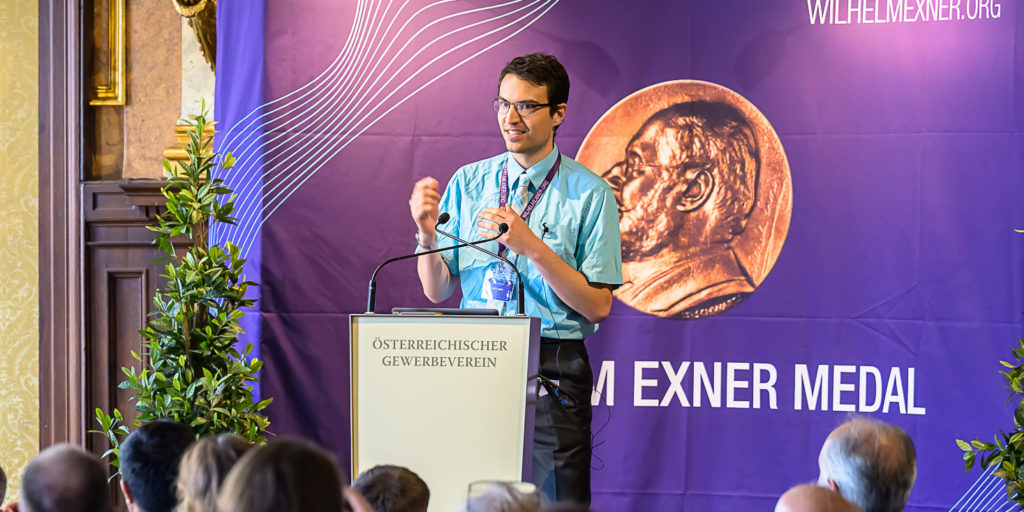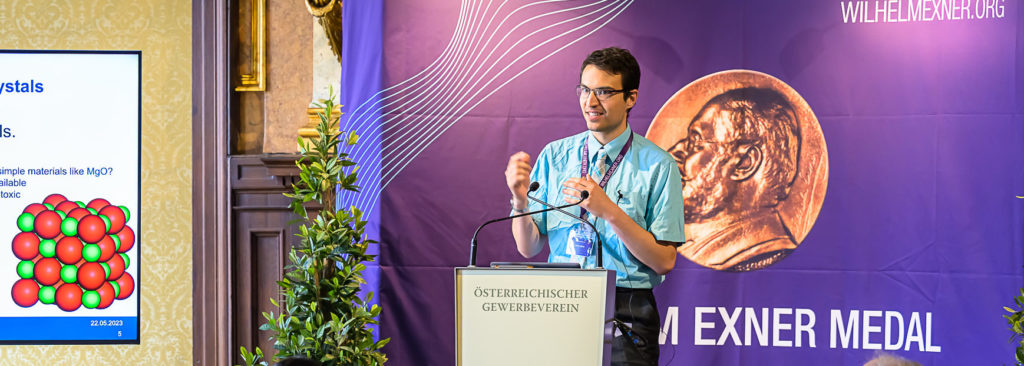Exner Lectures 2023 – Jakob Smith(TU Wien)
Humanity urgently needs to find solutions to combat catastrophic climate change. The vast majority of scientifically educated individuals is aware of two important strategies: increasing utilization of renewable energy sources and decreasing total energy consumption. Although energy “production” and energy “consumption” merit special attention as a sort of beginning and end of energy's journey through our societies' infrastructure, it is equally important to consider what happens along the way: in Austria, over half of it is dissipated as conversion losses. Thus, to improve our energy efficiency, ways of recuperating waste heat are essential and have been a principal research focus of the group of Peter Weinberger at the TU Wien.
Thermochemical energy storage is an up-and-coming technology that can take advantage of waste heat by storing it as chemical potential energy in readily available powders. These materials can store energy indefinitely and then release considerable amounts of energy via reversible reactions with gases such as oxygen, water, or ammonia and can be used for heating homes in the winter. Our group's investigations of thermochemical energy storage materials such as calcium oxalate, magnesium oxide, and copper sulphate shed light on the possible ways to optimize the performance of materials with the potential to facilitate an energy-efficient future.




